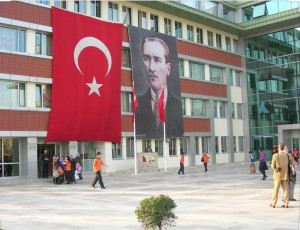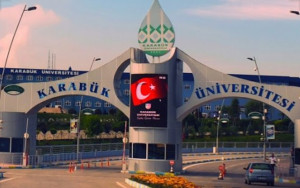At the age of 6, all children are required to enter the 1st grade of primary school, in which education is compulsory and takes 8 years. Upon completion of training, all students receive a diploma of primary education. On the basis of this document, admission to a secondary school is carried out, which takes 4 years to study.
Turkish secondary schools are divided into several types according to the profile of education: standard public secondary schools, private secondary schools, Anatolian high schools, which differ from standard ones in that they are taught in a foreign language (English, French or German), Anatolian religious schools, which differ from schools of the latter type by the presence of religious lessons. In addition, there are scientific schools that pay great attention to the study of natural sciences, as well as professional schools engaged in the training of specialists in working specialties.
At the end of 12 years of study, graduates must pass exams to obtain a diploma of secondary education. The exam is taken in one of 4 areas: Turkish – mathematics, mathematics – natural sciences, social sciences, foreign languages. The exam takes place centrally throughout the country. Along with general subjects in Turkish schools they study such disciplines as religious studies, military affairs and the history of the Turkish revolution. The school year lasts from October to June. Teaching is conducted in Turkish, English, French or German. Ratings are given on a five-point scale.
The higher education sector in Turkey is represented by several types of educational institutions: universities, military and police schools and academies, and higher education schools. To enter any of them you need to get a full secondary education and pass the entrance exams. At universities in Turkey, as well as at universities in other countries, you can get 3 academic degrees – the basic is a bachelor’s degree. To get it you need to study 4 years. Obtaining a master’s degree will require another 2 years, and a doctor’s degree – 5 years (2 years of magistracy + 3 years of doctoral studies) and writing a dissertation. In addition to universities, applicants have the opportunity to enter one of the higher vocational schools involved in the training of specialists in various professions in various fields of knowledge. In this case, the training will take 2 years. Higher education in Turkey is paid.Large companies interested in obtaining young highly qualified specialists, or even the state, commit themselves to pay for training. Currently, there are about 118 universities in Turkey, most of which are state-owned. Teaching at most universities is conducted in Turkish, but at some universities, the teaching language is English, French or German. Among the most prestigious universities in Turkey, the following can be distinguished: Middle Eastern Technical University in Ankara, Universities of Sabanci and Ketch in Istanbul.





